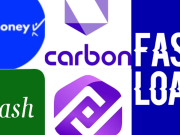The Africa startup ecosystem continues to gain momentum, with new data revealing both its growing sophistication and persistent concentration. According to a recent report by Africa: The Big Deal, four countries—Nigeria, South Africa, Kenya, and Egypt—collectively dominate the continent’s venture capital landscape, accounting for nearly 80% of the Top 100 most-funded startups.
South Africa leads in total representation with 23 companies on the list, followed closely by Nigeria with 22. While the two nations are neck-and-neck in numbers, Nigeria stands out for the performance of its top-tier ventures: seven of the Top 20 startups are Nigerian, including high-growth names such as Opay, Flutterwave, Moove, Interswitch, Moniepoint, PalmPay, and Andela. These firms have not only attracted significant capital but have also expanded across borders, shaping digital finance, mobility, and enterprise services across the continent.
Kenya and Egypt each contribute 17 startups to the list, though their innovation profiles differ. South Africa’s cohort is heavily skewed toward fintech, with 15 of its 23 entries operating in financial services—a reflection of the country’s mature banking infrastructure and strong digital adoption. Nigeria and Egypt show more balanced sectoral distribution, with fintech making up about half of their represented ventures.
Kenya, however, presents a distinct pattern. Only two fintechs—Pula and M-Kopa, the latter recently reclassified despite its energy origins—appear on the list. This suggests a broader diversification of Kenya’s innovation economy, where solutions in agriculture, climate resilience, and inclusive technology are gaining investor traction beyond the payments space.
Beyond the “Big Four,” other African nations are steadily carving out their presence. Ghana emerges as the leading second-tier market, with five startups in the Top 100, including mPharma, Fido, CarePoint, Zeepay, and PEG (now part of Bboxx following a 2022 acquisition). Western Africa as a region hosts 31 of the listed startups, making it the most represented sub-region, while Southern, Eastern, and Northern Africa remain closely matched in output.
Cross-border operations further complicate regional categorization. Chipper Cash, for instance, maintains strong operational ties to both Ghana and Uganda, highlighting how pan-African ambitions are reshaping traditional geographic boundaries in the Africa startup ecosystem.
Fintech remains the dominant force in funding, with 42 of the Top 100 startups operating in the sector. In 2025 alone, fintech has secured over $1 billion in investment, capturing between 45% and 51% of total venture funding and nearly half of all deals worth $10 million or more. This resurgence—up from a 28% share in mid-2024—has been driven by innovations in payments, remittances, and credit scoring, fueled by the continent’s vast unbanked population and rising mobile internet penetration, projected to reach 475 million users by year-end.
Yet the narrative that only fintech attracts major capital is increasingly outdated. Other sectors are demonstrating strong investor appeal and scalable impact. Clean energy and cleantech, for example, accounted for 18–20% of 2025 funding—totaling over $950 million, much of it in debt and project financing. With an estimated 600 million Africans still off-grid and green trade initiatives like AfCFTA unlocking new markets, investors are backing solar providers, pay-as-you-go energy platforms, and clean cooking solutions. Companies such as Sun King, d.light, and Burn are at the forefront of this transition.
Transport and logistics captured around 10% of Q2 2025 funding, buoyed by e-mobility policies and urbanization trends. Nigerian vehicle financing platform Moove, Algerian ride-hailing app Yassir, and Egyptian mobility aggregator Swvl exemplify the sector’s growth trajectory. Meanwhile, agritech is gaining ground as a high-impact field, addressing food security and smallholder productivity through data-driven farming models. Startups like Apollo Agriculture and ThriveAgric are proving that scalable, profitable solutions can emerge from rural-focused innovation.
Retail and commerce, a sector underpinned by Africa’s $600 billion informal retail economy, is undergoing rapid digitization. With mobile penetration exceeding 50% and internet users expected to surpass 600 million by 2028, B2B marketplaces such as Wasoko (formerly MaxAB), TradeDepot, and Omnibiz are streamlining supply chains and integrating digital payments for millions of SMEs. Healthtech, too, is showing resilience, with ventures like LXE Hearing, Pharma, and Cape Bio Pharms advancing access to diagnostics, medicines, and biomanufacturing across underserved communities.
The latest data underscores a dual reality: while the Africa startup ecosystem remains concentrated in a few key markets, it is also diversifying in both geography and sector. Investor interest is no longer confined to mobile money and digital banking. Energy, logistics, agriculture, healthcare, and commerce are now firmly part of the innovation equation.
This evolution signals a maturing ecosystem—one where startups are solving complex, systemic challenges while building businesses capable of regional scale and global relevance. As capital spreads beyond the Big Four and new sectors rise, the future of African entrepreneurship looks less like a single story and more like a constellation of interconnected breakthroughs.
Follow us on Instagram.
https://www.instagram.com/businessnewsng?igsh=ZXpweTdjOGF1ZXdu

























